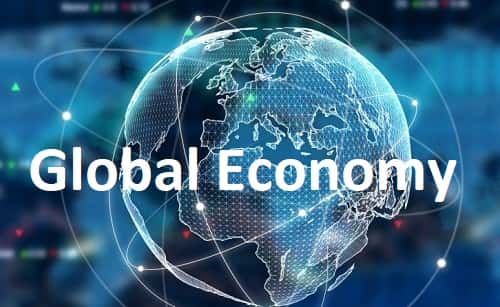The world is facing unprecedented economic challenges amidst a backdrop of uncertainty and volatility. From the lingering impacts of the COVID-19 pandemic to geopolitical tensions and supply chain disruptions, the global economy finds itself in a state of flux. This article provides an overview of the current economic situation, analyzing key trends, challenges, and opportunities shaping the global landscape.
The Impact of the COVID-19 Pandemic:
- Economic Fallout: The COVID-19 pandemic triggered one of the most severe global economic downturns in recent history. Lockdown measures, supply chain disruptions, and reduced consumer spending dealt a significant blow to businesses and economies worldwide.
- Uneven Recovery: While some economies have shown signs of recovery, others continue to grapple with the lingering effects of the pandemic. Disparities in vaccine distribution, varying levels of government stimulus, and structural vulnerabilities have led to an uneven economic recovery across regions.
Global Supply Chain Disruptions:
- Supply Chain Bottlenecks: Disruptions in global supply chains, exacerbated by the pandemic and logistical challenges, have led to shortages of key components and materials. From semiconductors to shipping containers, supply chain bottlenecks have disrupted production and contributed to inflationary pressures.
- Reshoring and Diversification: The disruptions have prompted businesses to reassess their supply chain strategies, with a growing trend towards reshoring, nearshoring, and diversification. Companies are seeking to reduce reliance on single suppliers and mitigate future supply chain risks.
Inflationary Pressures:
- Rising Prices: Inflationary pressures have surged in many economies, driven by factors such as supply chain disruptions, surging demand, and rising commodity prices. Consumer prices have increased across various sectors, leading to concerns about the erosion of purchasing power.
- Central Bank Responses: Central banks have responded to rising inflation by adopting a range of monetary policy measures. Some have signaled plans to taper asset purchases and raise interest rates to curb inflation, while others remain cautious amid uncertainties about the economic outlook.
Geopolitical Tensions:
- Trade Wars and Tariffs: Geopolitical tensions, including trade disputes and tariffs between major economies, continue to pose risks to global trade and economic stability. Protectionist policies and geopolitical rivalries have strained diplomatic relations and disrupted supply chains.
- Energy Markets: Geopolitical tensions in key energy-producing regions, coupled with supply constraints and geopolitical rivalries, have led to volatility in energy markets. Fluctuations in oil and gas prices have implications for both energy-importing and energy-exporting economies.
Opportunities for Recovery and Resilience:
- Digital Transformation: The pandemic has accelerated the pace of digital transformation, creating opportunities for innovation, efficiency gains, and new business models. Digital technologies have enabled remote work, e-commerce growth, and digitalization of services, driving productivity and resilience.
- Sustainable Development: There is growing recognition of the importance of sustainability and resilience in the wake of the pandemic. Investments in renewable energy, sustainable infrastructure, and green technologies present opportunities for economic growth while addressing climate change and environmental challenges.
Conclusion:
The current economic situation is characterized by a complex interplay of challenges and opportunities, from the ongoing impacts of the COVID-19 pandemic to supply chain disruptions and inflationary pressures. As economies navigate these uncertainties, resilience, adaptability, and innovation will be key to fostering recovery and building a more inclusive and sustainable global economy. Collaboration, both domestically and internationally, will be essential in addressing shared challenges and seizing opportunities for growth and development in the years ahead.


